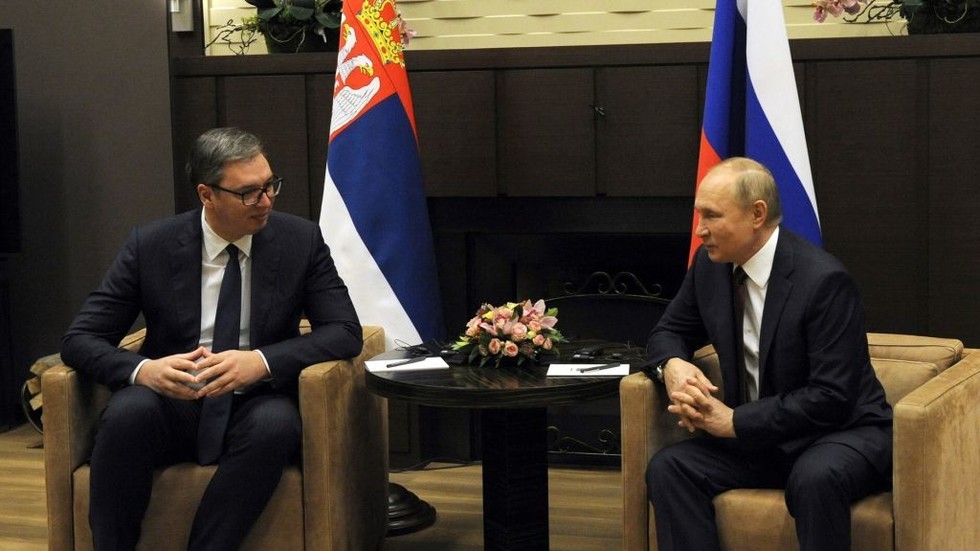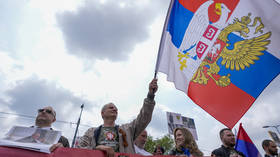
Belgrade has been told it must sanction Moscow and recognize Pristina if it wants to join the bloc

Russian President Vladimir Putin (R) meets Serbian President Aleksandar Vucic (L) in Sochi, Russia on November 25, 2021. © Kremlin Press Service / Getty Images
Maintaining close ties with Russia harms Serbia’s chances of joining the EU, the bloc’s foreign policy commissioner, Josep Borrell, said on Monday in Brussels. He also urged Belgrade to “align” with sanctions against Moscow.
Borrell hosted the foreign ministers of Albania and four former Yugoslav republics – Serbia, Montenegro, Bosnia-Herzegovina and North Macedonia – and Serbia’s breakaway province of Kosovo, calling on them to follow Ukraine’s example in making “swift progress” in joining the EU.
“We discussed Russia’s influence [in the region], which is trying to derail the European path of the Western Balkans candidates,” Borrell said. “We welcomed the strategic and courageous choices of some of them, who aligned fully with our foreign policy and sanctions.”
Albania, Montenegro, and North Macedonia have joined the bloc’s embargo. Though some officials in Brussels have said otherwise, Bosnia-Herzegovina has not. Neither has Serbia.
Singling out Serbia, Borrell revealed he told FM Ivica Dacic that “maintaining close ties with Russia is not compatible with its European Union accession process. It is also damaging to its own national interests, but certainly it is not compatible with the accession process towards the EU.”

Read more
Borrell also said that Serbia’s eventual membership depended not just on sanctioning Russia, but on “normalizing relations” with Kosovo, even though his own country, Spain, is among the five EU member states which do not recognize the breakaway province.
Serbian President Aleksandar Vucic has pointed to the discrepancy between the EU’s insistence on Ukrainian territorial integrity and its apparent disregard for same in Serbia, in justifying his policy of not joining sanctions against Moscow. Earlier this month, he noted that sanctions were the only thing any visiting Western politician wanted to talk about.
Speaking after the meeting with Borrell, Dacic said his country didn’t face any “explicit pressure” on Monday, while everyone in Brussels could witness the “extremist” and “surreal” claims coming from Kosovo.
The European Parliament recently adopted a report on Serbia which blamed the drastic fall in popular support for joining the EU on the presence of Russian media outlets. If Vucic’s government continued to support “anti-democratic politics,” the EP said, the EU should “reconsider the extent of its financial assistance” to Serbia.




